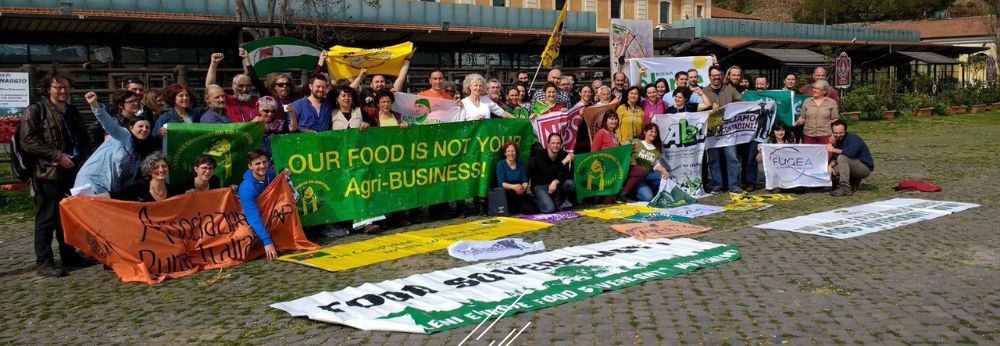Trade Agreement CETA threatens small and medium-scale livestock farms in Italy: ARI

FREE TRADE AGREEMENTS? NO THANKS! THE SOLUTION IS PEASANT AGRICULTURE
While tractor protests continue in Italy and Europe, and the European Commission, bending to the demands of agribusiness, backtracks on the environmental commitment made with the Green Deal, we at Associazione Rurale Italiana (ARI) are called to testify before the Foreign Affairs Committee of the Chamber of Deputies to discuss the Comprehensive Economic and Trade Agreement (CETA), the trade agreement between the European Union and Canada.
The informal hearing was convened in the context of the discussion on the bill C. 676 (EU-Canada) Ratification and implementation of Agreements between the European Union and Canada within the framework of CETA.
On February 21st, we presented our position on CETA and free trade agreements in general, which Europe continues to push as a solution to the food crisis. Here you can read and download the briefing note sent to the Deputies and the basis of our intervention.
Among the key points, we highlighted the deep damage that CETA causes to small and medium-scale livestock farms in Italy; the risks of further economic (and therefore decision-making) reinforcement of a single industrial group on the entire dairy sector; unfair competition among imported products, especially cereals; the impact on Italian products still certified “free from GMOs,” which may be contaminated by seeds and reproductive materials imported from Canada. Furthermore, by foreseeing the possible commercialization of cloned livestock meat, we warned of the negative impact on consumers who are deprived of the choice between different types of meat.
In conclusion, we emphasized how “the liberalization of trade between two countries with strong agricultural production structures benefits only a small number of agri-food companies, which in Italy are multinational companies, some of which have their legal headquarters and majority ownership outside Italy itself.”
In line with the peasants of the European Coordination Via Campesina who also protested in Brussels on February 26th, ARI calls for strong regulation of the internal market, the end of all free trade agreements, the effective implementation of the Unfair Trading Practices (UTP) directive, and the prohibition of selling below production costs to ensure fair prices and incomes for food producers. The central problem of European food policies is not the environmental measures envisaged by the Green Deal but the fact that they are tailored ad-hoc for agribusiness multinationals and for an economy of exploitation and competition that harms farmers both in Europe and in the Global South. We need a new model of international trade based on the principles of food sovereignty and international solidarity, and the peasant movement will play a fundamental role in building and advocating for it.
These are the positions also brought to an informal meeting with the chairpersons of the Agriculture Committee, which took place on February 22nd, where we were summoned in the context of tractor protests for a discussion promoted by the NGO FairWatch. In this meeting, we reiterated the urgency of laws and actions in support of peasant agriculture, which alone feeds about a third of the Italian population.
In this moment characterized by a strong crisis of representation in which producers no longer recognize themselves in their own trade associations, having a direct voice within institutions is more urgent than ever. We need to defend these few remaining spaces and continue to denounce the power of multinationals in decision-making processes.
At the same time, we recognize the importance of dialogue with other producers and with other parts of civil society, as well as the synergies that can and must be created with other movements calling for climate, labor, and social justice.
We produce food, we don’t manufacture it!
This post is also available in Español.
